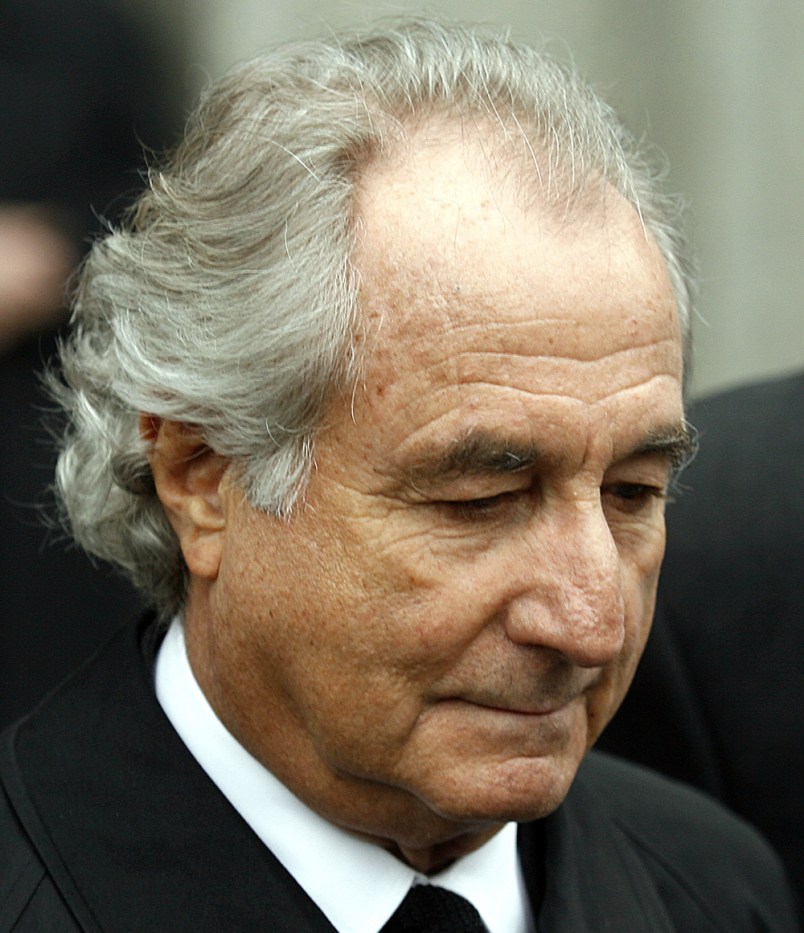Ever wonder what happened to the SEC staffers and supervisors who, for nearly two decades, managed to miss Bernie Madoff’s multi-billion dollar Ponzi scheme, despite a persistent whistle-blower and multiple inquiries — a monumental level of incompetence that “astonished” even Madoff himself?
Well, some saw their failures rewarded with high-paying private-sector jobs, while others are still at the agency, charged with catching the next Madoff.
Via CNN, here’s a quick look at what happened to some of the major players.
Name: Richard Walker
Misstep: In 1992, Walker, at the time the director of the SEC’s New York office, led a probe of an investment pool run by two Florida accountants, Frank Avellino and Michael Bienes, which offered suspiciously high returns, and for which Madoff served as money manager. Despite what the New York Times described this year as “numerous red flags,” the inquiry petered out after Avellino was assessed a small fine. Avellino continued to send money to Madoff, whose role in the operation appears never to have been looked into.
Where is he now?: Since 2001, Walker has served as general counsel to Deutsche Bank.
Name: Demetrios Vasilakis
Misstep: Vasilakis, who joined the SEC out of college in 1990, was a member of the examination team that investigated the Madoff, Avellino, and Bienes operation — and was left in awe. He told investigators for the SEC inspector general’s report (pdf) on the Madoff fiasco, released last month: “My personal conclusions [from the examination] were that [Madoff] was a pioneer in the industry… when I walked out of there it was more along the lines of wow, this guy is a third-market guy that does X percent of the volume on the exchange.”
Where is he now?: Vasilakis is now chief compliance officer for the hedge fund Atticus Capital.
Name: Gary Ward
Misstep: In May of 2000, Ward, an enforcement official in the SEC’s Boston office, met with Harry Markopolos to discuss a formal complaint that the whistle-blower had filed, questioning the legitimacy of Madoff’s returns. Markopolos concluded that Ward “didn’t even have a basic understanding of finance,” as he put it to the IG investigators. According to that report, Ward told a colleague that he would refer the complaint to the North East regional office, but never did.
Where is he now?: Ward is now senior counsel for MetLife Group.
Name: Arthur Levitt
Misstep:As chair of the SEC from 1993 until 2001, Levitt met with Madoff “on an infrequent basis,” he told the IG’s office. “It never occurred to me or anyone on my staff that Madoff was anything except a market maker,” he said to CNN.
Where is he now?: Since 2001, Levitt has been a senior adviser at the Carlyle Group, a politically connected private equity firm.
Name: Linda Thomsen
Misstep: Thomsen, who ran the SEC’s Enforcement Division from 2005 until February 2009, told the IG’s office that she was “generally aware of Madoff’s firm but did not recall being aware that the Enforcement Division had received any tips or complaints about Bernard Madoff or Madoff’s firm prior to December 2008.” That account ignored, of course, Markopolos’s famed November 2005 memo entitled “The World’s Largest Hedge Fund is a Fraud.”
Where is she now?: Thomsen is now a partner at Davis Polk.
Name: Simona Suh
Misstep: Suh was the staff attorney assigned to the 2006 Madoff inquiry, after joining the SEC out of law school in 2004. After a deeply flawed investigation, as detailed by the IG’s report, Suh recommended closing the case, finding no serious wrongdoing by Madoff. She subsequently received the highest possible performance rating. (Suh’s recommendation to close the case was reviewed and signed by Doria Bachenheimer, assistant regional director in the New York office, and Meaghan Cheung, branch chief of the New York Enforcement Division, both of whom resigned in 2008.)
Where is she now?: Suh replaced Cheung as branch chief of the New York Enforcement Division.






